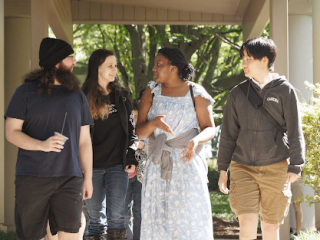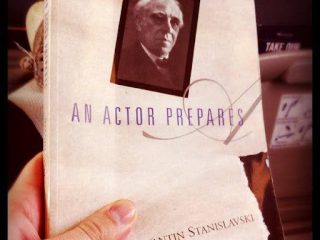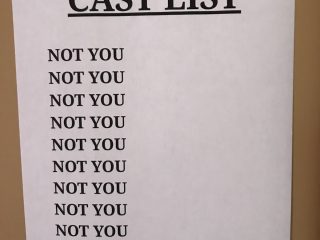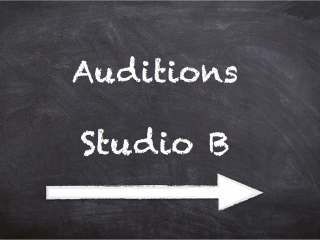As I was watching college football the other night, it really hit me. The art of professional acting MUST be a team sport. Artists who do not acknowledge this ultimately do not succeed. It is important to remember that in drama, on stage or screen, every action is a TRANSACTION — which is one of the reasons why people want to hire and work with responsive actors who listen. The artists who think that they themselves have all the answers and are already at their peek are the ones who struggle to get the jobs. Confidence is key, but I believe that at all stages in your career you need an amazing defense, a strong long-term strategy, and most importantly a coach who isn’t afraid to whip you into shape. Like the strongest athletes, every great actor should be listening to a great coach.

In my book, the number one thing that separates good actors from great actors is their ability to hear and respond to feedback. But who is telling artists what they need to hear? There is something amazing that happens when you get cast in a show: you inherit a director.
Suddenly, you have someone to shape your work, and help you see beyond your own limitations. You have a person who is on your side, but is being paid to push you. That person is allowed to question your choices, encourage you to do more and be more, and ask you to reach further inside to make the piece stronger, as a whole. Like a football coach, your director helps you find the plays and puts you in the best position for overall success.
But what about the other ninety percent of your career? All that time when you are trying to get the gig. Ladies and gentlemen —-THAT IS THE MOST IMPORTANT TIME TO ASK FOR FEEDBACK. I cannot stress this enough. I have seen so many actors repetitively complain (mostly on social media!) about how they don’t understand why they aren’t booking work. Rather than becoming introspective, frequently the statements accuse the current casting system of being flawed and not actually serving actors.
Every time I see this kind of statement, I want to reach through the computer and shake the person who wrote it and ask them, “When was the last time you asked for feedback from your audition?” I want to ask them, “When was the last time you hired a coach to go over material with you?” And, “When was the last time you asked a trusted industry friend what they think you could be doing to be more hirable?”
Often times the things that stop you from getting a job are small — so small that you might not even notice you are doing them. If you do not take the time to ask, you will continue to do them. And suddenly, what was once perceived as a small thing might become a large part of your reputation in the industry.
I recently worked with a casting director whom I very much admire. She gives a lot of honest, thoughtful, and unsolicited feedback in the audition room. This is a rare gift!
As I sat through these auditions with her, I always looked to the auditioner to see each individual’s reaction to the feedback — as that said much more to me than their actual audition. Reaction is crucial. The only reason anyone in this industry will take the time to give you feedback is if they actually think you have talent; otherwise they usually won’t waste their time. So when someone takes the time in the audition room to make a suggestion, it is not because they want to hurt you, it is because they are on your team and want you to get the job next time. Listen, take it in, say thank you, acknowledge that the feedback might serve you, write it down — and then implement it.
However, it would be remiss of me not to remind you that sometimes casting directors, coaches, agents, and friends are just plain wrong. Listening is important. Trying what they suggest is important. But being true to yourself is also highly important. Sometimes you simply have to wait to find the most trusted members of your team — changing completely at the whim of every casting director who saw you for three minutes in not necessarily helpful. It CAN be. But it isn’t always.
Also, sometimes a director or casting director simply can’t give you helpful feedback. They might be extremely busy. They might honestly not remember your audition. Sometimes you didn’t get cast because you were eliminated the second you walked in the room due to something having NOTHING to do with you. So, definitely ask for feedback, but if you are lucky enough to get it, take it with a grain of salt and appreciate that not every casting decision is about you.
Good actors know when to listen to a director, when to hire a coach, and when to seek critique. The BEST actors know how to listen to the feedback they are given and then ACT on it. Actions speak louder than words. THAT SAYING IS TRUE. If you want to be a better auditioner — do it. If you want to have a stronger personal brand — build it. If you want to cultivate a change in your career — make it. Stop talking, and mulling, and conversing. Ask for feedback then get out of your head and walk into the fire. The text is not enough — and it never has been. Didn’t we all learn that in drama school?
















2 comments
Hi Kate, not sure if you will see this. Are you suggesting that it’s okay to ask for feedback during or after an audition? How do we do this? An email to the CD? I want to make sure I would go about it in the correct way!
Dear Emily – I think the key points Kate made when she wrote this is to listen and take any feedback offered in the room at the time of an audition, and if you do ask for more afterwards, to not be hurt if they don’t remember you. As a performer myself, I would not ask for feedback in the room. The team has time commitments and schedules to keep so you don’t want to hold them up, but if you have built good relationships with certain CDs and are getting regular callbacks, a quick note of follow-up can’t hurt. If they have a chance to respond, they will. You being good at what you do makes their jobs easier. I wouldn’t seek feedback, though, following any sort of general call or open audition, there are just too many people present at those. Good luck! Laura – Editor